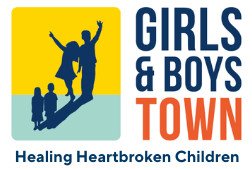- Staff login / Hotline
- 0861 58 58 58
A focus on mental health and our youth

Mental health issues are, reportedly, on the rise amongst youth in society generally today – and the challenges faced by youth entering our care at GBTSA has been even further intensified.
Youth are either referred to GBTSA with identified mental health diagnoses or their challenges are identified following thorough assessments on and post-admission. GBTSA does not advocate for the labelling of young people, but there are severe instances where the need to medicate mental health challenges is necessary as the young person embarks on a pathway to understanding their condition – and then is taught to manage their symptoms through cognitive behavioural interventions – and skills teaching, from the professional clinical teams on each campus.
Currently, approximately 25% of our GBTSA youth are receiving prescribed chronic mental health psychotropic medications. Of those, 73% are medicated for diagnosed ADHD, conduct disorder and/or disruptive mood disorders/depression, as a result of their life experiences before entering GBTSA.
Different psychotropic medications, varying doses and medication combinations generally result in varying side-effects for youth, including impacts such as lethargy, headaches, nausea, fogginess, etc. Thus, the ultimate treatment outcomes are to ensure that each youth:
- Has an established, least-restrictive medication balance of the lowest dose necessary to control the condition,
- Is as close to equally functional as compared to his school and friendship peers
- Has learned behavioural and emotional coping mechanisms and skills to manage his/her mental health challenges.
The strong connection between abuse and neglect and resulting mental health challenges is well researched and compelling – as is the connection between mental health challenges, abuse and poor school academic achievement. Children who have experienced abuse and neglect are therefore at increased risk for a number of problematic developmental, health, and mental health outcomes, including learning problems (e.g., problems with inattention and deficits in executive functions), problems relating to peers (e.g., peer rejection), internalizing symptoms (e.g., depression, anxiety), externalizing symptoms (e.g., oppositional defiant disorder, conduct disorder, aggression), and post-traumatic stress disorder (PTSD). As adults, these children continue to show increased risk for psychiatric disorders, substance use, serious medical illnesses, and lower economic productivity.
It is also hopeful to note the evidence that changing environments can change brain development, health, and behavioural outcomes. There is a window of opportunity, with developmental tasks becoming increasingly more challenging to negotiate with continued abuse and neglect over time.
The good news is that when mental health signs and symptoms are recognised early enough and therapeutically addressed and managed, our youth are able to adjust to newly learned, appropriate alternative behaviours and new ways of perceiving and thinking about their world, challenges and experiences – and can achieve and SHINE in line with their peers.
